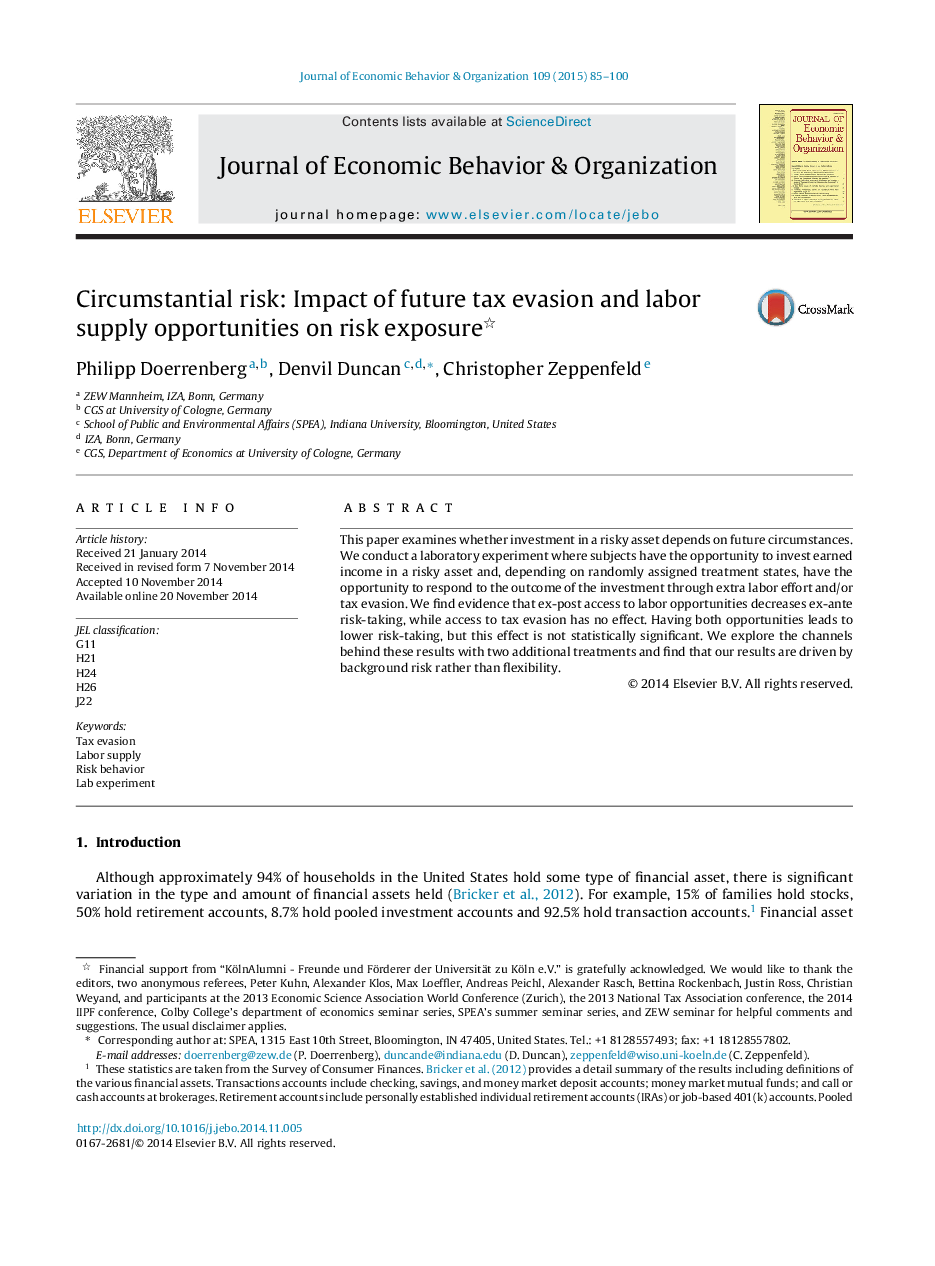| Article ID | Journal | Published Year | Pages | File Type |
|---|---|---|---|---|
| 883486 | Journal of Economic Behavior & Organization | 2015 | 16 Pages |
•We identify the effect of future labor and tax evasion on current risk exposure.•Labor income has a large negative background-risk effect on risk exposure.•Certain labor income has a small positive flexibility effect on risk exposure.•Labor effect is smaller among subjects who also have an evasion opportunity.•Evasion opportunity, by itself, has no effect on risk exposure.
This paper examines whether investment in a risky asset depends on future circumstances. We conduct a laboratory experiment where subjects have the opportunity to invest earned income in a risky asset and, depending on randomly assigned treatment states, have the opportunity to respond to the outcome of the investment through extra labor effort and/or tax evasion. We find evidence that ex-post access to labor opportunities decreases ex-ante risk-taking, while access to tax evasion has no effect. Having both opportunities leads to lower risk-taking, but this effect is not statistically significant. We explore the channels behind these results with two additional treatments and find that our results are driven by background risk rather than flexibility.
